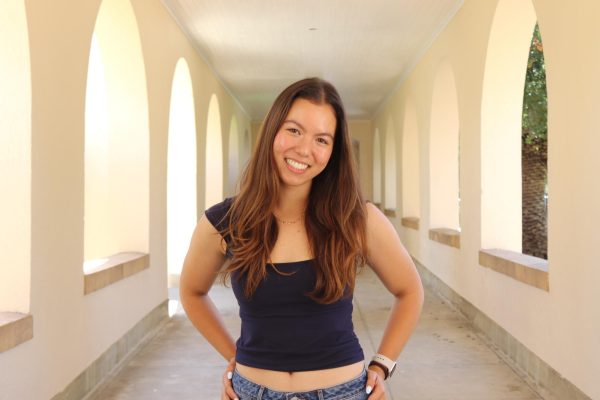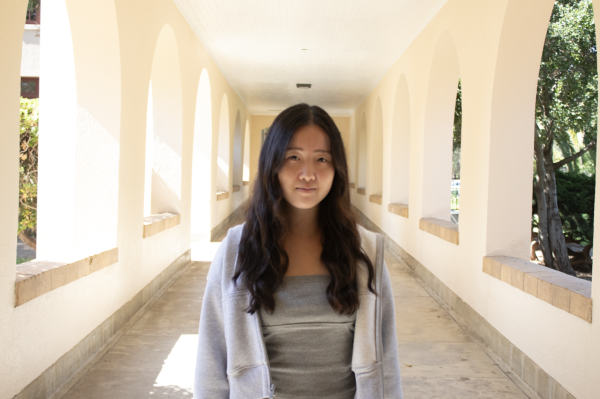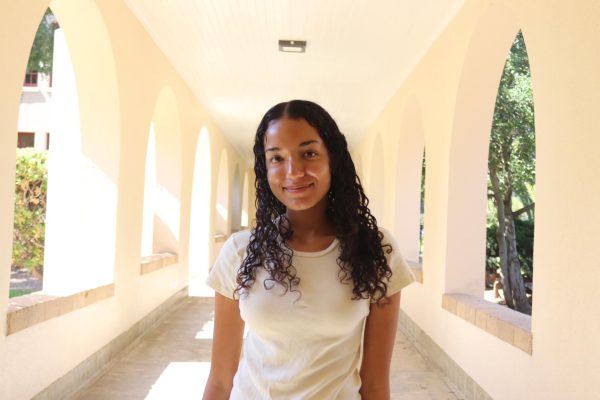Amid the swarm of tech giants and Teslas, Palo Alto has become a beacon of innovation. The town and all of its neighboring cities, which comprise the Bay Area, are applauded for their rigorous schools, rapidly advancing technology and sprawling estates attached to large price tags. Despite the high expenses, for many people, Silicon Valley is seen as a hotspot of rapid growth: constantly churning out the next million-dollar product, meeting the rapid post-pandemic dependence on technology with its creativity and technological solutions.
Along with all of the admiration that the Bay Area attracts, one key aspect of its citizens’ lives gets lost in the fog: students’ mental health. From Fremont to Cupertino to Palo Alto, students’ minds are filled with an overwhelming pressure to meet the high academic standards that go hand-in-hand with attending schools in the Bay Area.
And, despite what is known about the area, one question remains: what is it about the Bay Area’s community that creates such high standards?
Don Austin, the Palo Alto Unified School District Superintendent of Schools, believes that the dense pressure students face regarding their education is the culmination of the many voices in a student’s life.
“The competition [of the school district] is no one person’s fault,” Austin said. “It’s not the schools’ fault, it’s not the parents’ fault and it’s not the teachers’ fault. But there is absolutely a culture here [in Palo Alto] that exists. It’s often culture that is the last thing to change.”
 Along with this, Austin acknowledges that meaningful change has been historically difficult to implement.
Along with this, Austin acknowledges that meaningful change has been historically difficult to implement.
“[Silicon Valley] is a place that doesn’t handle change well, which is funny to me,” Austin said. “This place was created on change and being disruptive, but you touch anything here, and it’s met with opposition. That’s part of the culture, which makes this issue [intense competition] a really tough thing to get at the heart of.”
Suzie Scher, who graduated from Gunn High School in 1994, has witnessed the acute academic demands of Palo Alto students that have been present since she was in high school.
“I felt pressure just from the kids around me and the community, knowing how high-achieving all the parents in the community were and having Stanford right there [in the neighborhood],” Scher said.
Additionally, Scher felt that the community in Palo Alto only promoted one pathway — a four-year university education.
“I was feeling stressed about picking where I was going to go to college,” Scher said. “Was I ready to go to college? Did I even want to go to college?”
Many students in the Bay Area view pathways besides college as “lesser than.” For Paly freshman Arnav Shah, future universities are already a primary focus.
“A lot of freshmen are already starting to say what colleges they’re interested in or what pathways they’re going to take because that’s how you choose electives,” Shah said.
Shah also recognizes that the focus on attending a university is spurred by the strong financial situations that many Bay Area families are in.
“A lot of people that live here [in the Bay Area] are well off, and a four-year university is kind of expected because of that,” Shah said.
Likewise, at Gunn High School, diverging from the college path is considered unconventional. After being rejected from 16 colleges, Stanley Zhong, Gunn High School class of 2023, was hired by Google as a software engineer. This was a new path for Zhong, whose entire high school experience was devoted toward building his resume.
“[At Gunn] there is a lot of pressure to apply to a ‘good college,’” Zhong said. “[College] was very top-of-mind whenever you’re doing anything; you’re picking a new activity you want to try out or the classes you want to take, and that’s always in the back of your mind: how is this going to look on my college application?”
Zhong noticed himself hyper-fixating on colleges, not only due to internal pressures, but also because of the culture around his peers about life after high school and the expectations everyone set for themselves.
“I don’t think it’s the schools themselves [that create pressure], necessarily, but there’s definitely a culture around trying to get into these top schools, where everyone around you is talking about these schools… then it’s hard to not care about it,” Zhong said. “If all your friends are talking about [college], then you kind of have to at least be aware of it as well.”
The quantitative nature of grades and test scores can also act as an easy form of comparison and pressure.
“It’s hard to not compare [yourself] as a student, especially in terms of grades,” Zhong said. “It’s a number. You can tell if your number is bigger or smaller than others’ numbers, so it’s hard not to even subconsciously make a comparison.”
Zhong’s family moved to the Bay Area when he was in fifth grade, motivated by the reputation the Bay Area holds for education.
“Gunn is known as a good school, and Gunn is known to have a good education,” Zhong said. “The types of families who want their kids to have the highest leg up possible will then come to this area.”
Consequently, this strong reputation surrounding education has caused parents and students to have a narrow scope of the future. Often, the universities students apply to are predetermined by a student’s family, and this subset of schools is viewed as the end-all-be-all.
“Some of them [classmates] would share that their parents were pushing them to take a certain number of AP [Advanced Placement] classes, have a certain GPA [grade point average] or only apply to certain schools, like Ivy Leagues, or schools with a really exceptional reputation,” Scher said.
Students have also developed a wide variety of motivations for pursuing certain activities and classes. Specifically, in recent years, the ultra-competitive high school environment in the Bay Area has fueled the prominence of college admission anxiety. As a junior at BASIS Silicon Valley, a school where taking numerous APs starting freshman year is the norm, Grace Huang finds herself overwhelmed despite all her efforts.
“There is a lot of pressure surrounding school and extracurriculars because there is always that cloud of doubt that I am not getting into a good college,” Huang said.
For many high schoolers, the pressure to succeed academically is compounded by an endless cycle of comparison and expectation. Paly junior Jessica Wong places an emphasis on her academics, which often comes at a cost.
“I hyper-fixate on grades because I am constantly comparing myself with my peers and expecting myself to be either on the same level or doing better than I am,” Wong said. “And then there’s also the factor of parents and what expectations they have of you. Once you get in the loop [of comparison] you can’t really get out of it.”
This pressure surrounding school has caused many students, including Paly sophomore Leilani Chen, to hold expectations for themselves to stay in the highest math or science lanes.
“It’s not that you have to be the best at everything, but you have to have an explanation for why you’re not [in Honor lanes],” Chen said. “If you laned down from Geometry Honors to regular Geometry, you have to be able to say something … just saying ‘I couldn’t do it’ is almost invalid.”
Staying in high-level courses starts to turn into a messy act of juggling between courses, especially when multiple tests all fall on the same week or day.
“[Students] are not really sure which one [class] they want to prioritize over the other, especially since if both are high rigor, failing one means you’ll fail the class itself,” Wong said. “Their mental health takes a hit because they’re so stressed out about both the tests.”
Kylie, another Paly junior whose name has been withheld for privacy reasons, has noticed that all of this pressure for course rigor, college and academic success primes students for comparison.
“At Paly it’s hard not to compare yourself to everyone because everyone is so accomplished at something,” Kylie said. “When you’re around accomplished people it blends together and makes it seem like they are all good at everything.”
Even as a Paly freshman, for Ana Stier, the hyperfixation on grades and getting the highest scores is apparent.
“I often feel stressed on how people ‘brag’ or shame others for not having the best grades,” Stier said.
At Paly, Kylie has gotten used to hearing these subtle jabs at other students regarding how much or little someone is studying. On the surface, people’s work ethic seems like something they want to brag about. But internally, Kylie recognizes it as a manifestation of something more uncomfortable.
“People [at Paly] either want to make it seem like they put no effort into getting good grades, or they want to make it seem like they’re so much better than you because they’re working so much harder,” Kylie said. “Many people try to over exaggerate their bad study habits as a kind of failsafe in case they don’t end up doing well on a test because it gives them an easy way out to just say they didn’t study or felt so overworked.”
 The impacts of academic pressures that the Bay Area cultivates can also manifest themselves in students’ physical well-being. Stress reveals itself in the human body in a multitude of ways, including but not limited to headaches, sleep troubles and an inability to concentrate, according to Mayo Clinic.
The impacts of academic pressures that the Bay Area cultivates can also manifest themselves in students’ physical well-being. Stress reveals itself in the human body in a multitude of ways, including but not limited to headaches, sleep troubles and an inability to concentrate, according to Mayo Clinic.
“I did have a period during my senior year where I kept having these chest pains and thinking that I was just sick,” Scher said. “Looking back, that had to have been stress.”
Even today, over three decades later, the heavy workload that challenging courses entail can still push students to their limits in terms of their physical and mental health.
“During my freshman year, I didn’t get my period for the majority of the year because I slept really late, and I was stressed all the time,” Huang said. “It did eventually come back during sophomore year, but it was worrying, and I really hope it doesn’t happen again.”
As Kylie figured out her study habits and lifestyle throughout high school, she learned that sacrificing her health, like sleep, is never worth it just to finish homework.
“I never feel guilty [for sleeping] because if I’m not getting enough sleep, I won’t be productive the next day and it won’t matter that I finished my math homework the night before since I’ll have more work the next day,” Kylie said. “I’ll be too tired to work if I don’t get enough sleep.”
However, not all students have the proper knowledge to maintain a proper balance between physical health and school work, which creates mental health challenges that arise for many PAUSD students due to the highly competitive environment.
Over time, the district has integrated more policies and lessons regarding mental health awareness and support into students’ lives. Shah believes that Paly successfully aids students in determining their futures, which mitigates stress and promotes productivity.
“We were doing a four-year plan in advisory, and I find that motivating because it helps me stay on top of my plans before I get to other grades where I will have a lot more work,” Shah said.
Despite the strain of academic rigor in the Bay Area, some students, such as senior Justun Kim, find the idea of a promising future as an encouragement to challenge themselves.
“The idea that all the hard work will pay off in and after college with the opportunity of a stable job motivates me to maintain a busy schedule,” Kim said.
Furthermore, balancing the intense demands of a high-pressure academic setting may serve as a source of inspiration for students. Sarah Liang, a senior at Lynbrook High School, believes that the competitive environment at her school holds benefits.
“I do feel a lot of pressure in high school due to knowing many amazing people in academics and extracurriculars, but I also like the environment because I can learn from [others],” Liang said. “If there was no competition or pressure at all, I wouldn’t have been able to improve as quickly and efficiently as I have right now.”
At a school where many students evaluate their self-worth through their achievements, Stier remembers to focus on her own improvement, rather than fixating on other people’s accomplishments.
“I always try my best to remember that everyone learns at different paces, and as long as I do my best and try harder, I can reach my goals,” Stier said.
A positive approach to deciding a course schedule is to focus on genuine interests rather than yielding to peer pressure.
“If you want to take AP classes and things, do it because you want to, not because somebody else is telling you you need to,” Austin said.
As students progress through the four-year high school period, compromises are bound to be made. Paly senior Julian Hong has made his fair share of sacrifices to continue pursuing things he enjoys spending time on.
“In my freshman year, I played basketball: AAU [Amateur Athletic Union] and for Paly,” Hong said. “And then, it became way too much [to do] given everything I had going on with ASB, journalism and debate. So I made a decision to drop that, but I kept playing volleyball, which is a sport that I felt like I was better at, and I’m varsity captain this year. You have to find time for things you care more about, and things that aren’t as important to you, you have to let go.”
Stories like Hong’s demonstrate that often, it can take time to pinpoint the right interests for any given person, but once these interests are discovered, it is of the utmost importance to preserve them and preserve the joy they bring upon one’s life.
The motive behind academic conformity tends to be a strategy to appease colleges. In actuality, the passions that individuals tend to sweep aside may be what lets them stand out most. Hong considers his college application experience as a testament to this.
“A lot of the things that I was told would be good academic things to do are things that I didn’t care about when I was younger,” Hong said. “And then in high school, when I’m writing my college application essays, I realized that you only write about a few selective things that you’re deeply passionate about.”
To further maintain a healthy perspective in high school, Liang considers moving beyond constant comparison against others as essential for personal growth.
“I do sometimes compare myself to my peers, and, unfortunately, I do stress over how my GPA isn’t as high as some other students who have near-perfect GPAs,” Liang said. “But, I also did realize how I have other things that make me stand out as a unique individual like art and music. Everyone is different, and I learned to accept that.”
Similarly to Liang, Austin also encourages students to embrace their natural timeline and not devalue themselves if they do not grasp a concept immediately.
“I took statistics in college three times by the end, not only did it click … I grew to love it,” Austin said. “But the first two times, it just wasn’t clicking. … I don’t think we allow anything to click later here.”
The importance of individuality and being oneself is a factor that often goes forgotten in ultra-competitive environments like that of Silicon Valley. For some students like Chen, it is useful to stop and consider what can actually improve character versus simply strengthening a resume.
“I barely do anything that I don’t think is fun,” Chen said. “I just do things that I feel are valuable and make me a better person and more interesting.”
For Hong, learning how to utilize school to improve character and enhance one’s interests is what constitutes a “good student.”
“I think someone who’s resilient and who can overcome challenges is a good student,” Hong said. “At Paly, there are a lot of academic setbacks that you can face, like not getting the grade you wanted or personal things. It’s important to be able to overcome this and to develop a resilient mindset.”
In an academically intense environment like the Bay Area, where competition often drives students to push boundaries, there is a lesson that cannot be outsmarted or bypassed: integrity.
“I’d so much rather be able to celebrate people for being resilient than for their GPA,” Austin said. “You can cheat the GPA. You can’t cheat being a good person.”
Paly senior Holden Lee is no stranger to the idea of casting his net of opportunities wide in order to make the best out of his time in high school and truly discover what his real interests are.
“I realized in freshman year that I had a lot of opportunities and might as well take advantage of some,” Lee said. “During freshman year, I just kind of stuck my head in the door and got to experience a lot of different things like clubs and activities.”
In environments where academic success is of the utmost importance, students must remember to extend support to each other and prioritize the joy that comes from connections and kindness. When Lee thinks back on his high school experience, one of the most important aspects of it was being there for his friends and classmates and being a good person.
“If one of my friends is doing something and they’re succeeding, it’s really important to me that I’m the one there supporting them and cheering them on,” Lee said. “Regardless of academics and extracurriculars, if you’re a good person, you have a good moral compass and you’re developing good habits, then that’s invaluable.”











